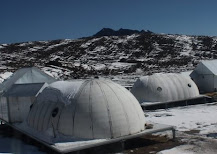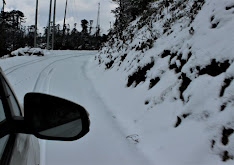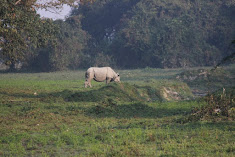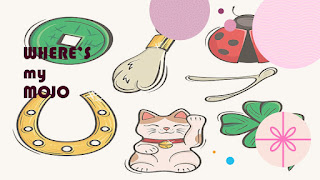Arunachal - Land of Sunrises and Orchids
Arunachal amazes you not just with its vastness but also
with the diversity that exists within a state.
The largest state in the NE but least density of people;
Limited hospitality industry but large-hearted hospitable
people.
The contentment vis-à-vis the burning desire of the young
gen to do more,
Where bad, non-existent roads lead to a piece of paradise.
Bright toothy smiles which belie their harsh existence,
Where lemons are the size of oranges and oranges the size of
limes,
And tropical fruits like bananas grow at high altitude!
Arunachal is all this and plenty more.
Travelling for 8 days through a tiny part of it may have
left me a little butt sore,
but had me enthralled with this chant on my lips “Yeh Dil
Maange so much more”!
I hope to be back for another ethereal experience.
Table of Contents
- Which month to plan your Trip
- Points to Remember
- Day 1 – Shergaon
- Day 2 – Mandala, Dirang
- Day 3 – Sangti Valley, Dirang
- Day 4 – To Tawang
- Day 5 – Bum La and Madhuri Lake
- Day 6 – Tawang
- Day 7 – Bomdila
- Day 8-9 Kaziranga
- Day 10 – Dep to Guwahati for your return flight.
BEST TIME to VISIT
ARUNACHAL
It all depends on what catches your fancy:
Peak
Season: Winter
(October-February) + Spring (March to April)
Shoulder
Season – Summer
(End April to May)
Off
Season – Monsoons
(June to September)
DAY 1 – GUWAHATI - SHERGAON
Guwahati was the landing base for us, family of 4 adults. We were met by our driver in a freshly serviced Innova with hill assist. Advised to take the alternate route via Bhairabkunda due to the roadworks underway on the regular route, it proved to be a lovely drive.
Most tourists push for Bhalukpong or Bomdilla but we were happy to break journey at Shergaon by about 5 pm. With limited home stay options in the winter, we were lucky to get Gombhu n his family at the Red Berry Cottage right next to a clean flowing river. It’s an old stone wall house; very cold in February but the warm kitchen stove, the flavoured “lal chai” and the welcoming family made for a cheerful sight. Life centred around the kitchen heater in each home; most of the residents belong to the Sherdukpen Tribe, it was interesting to learn a bit of their history and their progress into the 22nd Century.
We had a treat in store for dinner: a home cooked meal of
smoked pork dried by the family in their shed (must try) and homemade cheese
stew - churpa with steamed rice hit the spot. Must try: wine from locally grown
fruits – Apple, Kiwi and Persimmon etc. depending on the season.
Beautiful options of small treks along the river the next day made this break even more worthwhile. Enjoyed our pre breakfast trek across the wooden bridge into what seemed like a painted meadow with undisturbed fish pools, logs across streams, leaf covered forest paths…
Other things to Do: Lhagyala Gompa Domkho in
Morshing, Sanglem; Chillipam Monastery
in Rupa; Visit fruit orchards; Trek to Choskorong
Waterfall and Forests and beautiful photo ops everywhere for
camera-freaks.
DAY 2: VIA MANDALA TO DIRANG
We
were guided to a sparsely used road to Mandala Top[SG1] . We came across very few cars, just small
hamlets as we wound our way up. Hardly anyone was seen outdoors, maybe due to
the cold weather. The timing was perfect as it had snowed the previous evening
and to fill our cup of happiness, it started snowing as we reached the top. The
fresh snow contrasted beautifully with the green trees and added a more
ethereal feel as compared to a full snow-covered white look.
Stockpile of chopped wood neatly stacked in shacks greeted us as we approached Mandala village making us realise how precious this commodity is here. The 108 Manes donated by various families is at a slightly higher height and the first sight is of serenity. A must visit if time permits. Due to the low season, the one and only café was shut – we had to hurriedly call our next destination and request lunch.
From Mandala, we pushed on to Dirang town. Most visitors
deem it worthy of an overnight stay but we decided to give it 2 nights. We
breathed in the fresh air and the sights: trees filled with mini oranges, flowers
in hanging pots greeted us practically every home yard.
Our choice of accommodation was the very
peaceful Boutique Cottage. One parks across the river and uses a foot bridge to
reach the Cottages. A tree weighed down with giant sized lemons greets you long
with rows of orange filled tree. We took it easy in the afternoon and left
later to explore the Dirang town/ market. A small bustling local market dotted
with the usual suspects: groceries, clothes, hotels and of course the multiple
alcohol outlets.
Dinner options in Dirang and other towns for that matter, are
limited in the off season; either at your hotel or the few restaurants in the local
market which starts closing by 7:00pm in the winter.
We ate at a place popular among the locals – high footfall
ensures quick turnover implying fresh food preparations.
DAY 3: SANGTI VALLEY and DIRANG
There are a few places one must make time for, ex Sangti
Valley is one. About 15-20 kms away, it's a beautiful village of smiling faces,
abundant sheep and of course the ever present pristine clean stream waters. Sheep
rearing is important to this region, hence the huge Sheep Breeding Institute in
Sangti which also provides extra income to many of the locals as shepherds.
A relatively clean village where drying pork and corn vie for space in the sun, former dried for a delicacy and the latter for sowing in the coming season. Traditionally attired elderly women greet you as they mind the young ones; you can see signs of the new world in multi-coloured hair hues, modern clothes and the blaring western music.
Alternately for food, cross the village and you'll come to a
bridge over the river. Right there, is a small hotel which was closed as they
were sprucing up for their New Year. But they obliged us with the omnipresent
Maggi noodles. We
Evening was an interesting activity with a Tibetan cuisine
class conducted by the hotel owner. The small, incongruous stuffed balls
(momos) have earned a lot of respect from me thence.
DAY 4 – DIRANG to TAWANG
 The drive thru the snow-capped mountains, evergreens flecked
with fresh snow, frozen streams thawing gently, wooden pedestrian bridges… No
photo can capture or do justice to it.
The drive thru the snow-capped mountains, evergreens flecked
with fresh snow, frozen streams thawing gently, wooden pedestrian bridges… No
photo can capture or do justice to it.
We were blessed with a
Heads Up: if you are a coffee lover, avoid the coffee. It’s a sweet, lightly coffee flavoured milk. There are basic (open air) facilities
for the travellers to use here.
Next stop is the tribute to the lone ranger, Jaswantgarh War Memorial. Pay your regards to the brave martyrs of the 1962 Indo-China war. After that head to the army canteen to enjoy hot dosas, samosas, bakery products and some interesting army tales along with free tea at 11,000 feet. The canteen is run by the same unit to which martyr Jaswant Singh Rawat belonged - Garhwal Rifles.
Shortly, around a bend from there is your first view of
Tawang, the beautiful Shangri La located on the distant mountain. You wonder,
“Are we really heading that far???”
Do not miss the opportunity to stop at the Nuranang or Jung Waterfalls. Even in February with limited flowing water, it was both graceful and ferocious in its flow. Go down the steps to enjoy the gorgeous rainbow at the base - perfect photo op.
Inspite of its rising popularity among tourists, Tawang is
still uncommercialised; though it has varied budget options, it still has a
long way to go in terms of
The restaurants offer good variety of local food but close early in the winters. There were some new names on the menus here: Thentuk – soup made from small, broad noodles, more Churpa, Ema datchi with local rice, Bhutanese Thali, etc. which we tried over the next 3 days.
DAY 5: TAWANG to BUM LA and SUNGESTAR LAKE
Our visit to Bum La was scheduled for an early morning departure. A stop at

The drive to Madhuri Lake is dotted with multiple frozen lakes (some call it the “Lake District” of India), grazing yaks and untarred roads. The travel makes one shudder but the cheerful chatter of the driver keeps one entertained throughout.

 Keep a lookout for the Bidi baba ka Mandir and get your
driver’s version of its history as each one has a different story to
share. Enjoy the pristine surroundings,
the warm army welcome and the hot lunch at the army canteen.
Keep a lookout for the Bidi baba ka Mandir and get your
driver’s version of its history as each one has a different story to
share. Enjoy the pristine surroundings,
the warm army welcome and the hot lunch at the army canteen.
If you want to squeeze the trip tight, you can visit the
ancient monastery the same afternoon and move to your next destination in the
morning.
DAY 6: TAWANG SIGHTSEEING

Lunch was at Mon Valley restaurant, renowned for local food. Being popular, the place is packed and the service a bit slow. But the food made up for the tardiness. We finished the day by a visit to the Tawang War Memorial.
OTHER PLACES TO VISIT: The large Buddha statue, the hot Springs, Gyangong Ani Gompa, Urgeyling Gompa.
DAY 7: TAWANG TO BOMDILA
Signs of New Year celebrations were everywhere the next
morning as we left for Bomdilla. The white scarf tied on the doorway, motor
cars, bikes, traditionally dressed families out visiting. The happy smiles were
infectious as we waved and took pictures.
A one-night halt was what we had planned for. But a last-minute intimation of possible road closures had us pushing ahead to Bhalukpong. The entire stretch till Bhalukpong seems to be getting overhauled, making for slow progress. Travel time in this region is relative. It all depends on the current condition of the roads.
We managed to get rooms at Prashanthi Cottages, a govt owned enterprise (now privately run) next to the River Kameng. A short walk leads to the river. Such a beautiful spot! Only if we could learn to clean up after ourselves. The remnants of good times had by all visitors was visible all around killing the vibe of a quiet nook.
OTHER PLACES TO VISIT: The Monastery, the Orchid Park in
Bomdila
DAY 8: BHALUKPONG-KAZIRANGA
Next morning, after a hearty breakfast, we were on our way to Kaziranga.
Home stays and other hotel options to suit every pocket are there. Our choice of place was Borgos, where all the room balconies overlook dense trees giving one the impression of actually being in a jungle space.
 Not to be left behind,
Not to be left behind,
Located besides the mighty Brahmaputra, these ranges
undergo a metamorphosis each year after the monsoonal flooding.
DAY 9: KAZIRANGA SAFARIS

The mighty rhinos, the gracefully bathing elephant
herd, the eagles in flight, the preening jungle fowl, the fearful deer… are all
etched in memory forever.
We left for
Guwahati on the 10th day, a satisfied and a happy lot after our
intensive travel experience. Will definitely recommend Anurag Dhaba for a lunch
stop for your last fling with an authentic Assamese thali.
Assam and Arunachal… 2 of the 8 sister states are in
complete juxtaposition: race, weather, food, ecology…even the roads but
completely dependent on each other. Guwahati is the gateway and the economic
hub for the northeast! The other states depend on it for many of their supplies
and in return, Assam enjoys the exalted position and economic benefits of this.
They both need each other to better their existence.
This trip re-defined a lot of pre-existing notions for me.
HAPPINESS IS being in a warm kitchen around a pot-bellied
stove…
HAPPINESS IS feeling the warm sun on my back next to a
flowing stream…
HAPPINESS IS driving slowly on a snow-covered road with
snow-flakes gently floating down…
HAPPINESS IS an army canteen at 15,200 ft serving hot chai…
And finally…
HAPPINESS IS SEEING A STRETCH OF TARRED ROAD AFTER A long bone rattling bad road.
POINTS
TO REMEMBER
●
An ILP (Inner Line
Permit) needed to enter Arunachal. Though possible online,
●
You need a local cab
in Tawang to take you ahead to Bum La as
●
When booking hotels,
make enquiries about meals as often food options are limited (esp in low
season).
●
If travelling in
winter, snow chains on tyres (or strong nylon rope for jugaad) must be there in
your car.
●
Carry food rations
for emergency.
●
Vegetarian
speciality dishes available along with the non-veg though they are limited and maybe repetitive.
● Many roads in Arunachal are under construction especially off the beaten track. Do check before you make your travel plans.






















Comments